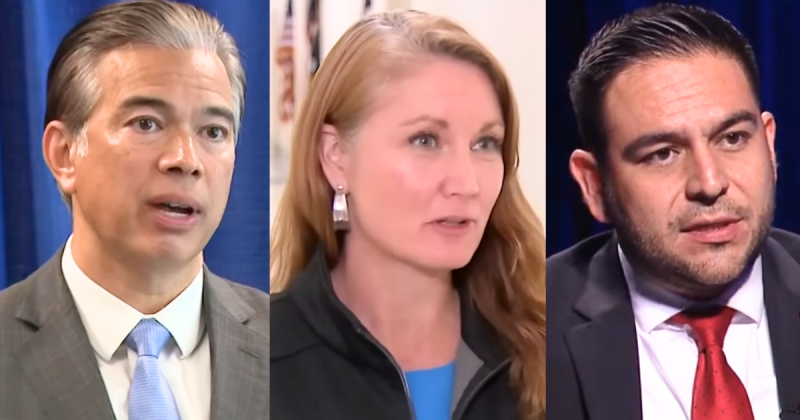The nation’s longest government shutdown in recent memory is now threatening to leave millions of Americans without food assistance, as the U.S. Department of Agriculture (USDA) confirmed that Supplemental Nutrition Assistance Program (SNAP) benefits will be suspended beginning Nov. 1 unless Congress reaches a funding deal.
In a statement posted over the weekend, the USDA warned that reserve funds have been exhausted and accused Senate Democrats of repeatedly blocking measures to restore them.
“Senate Democrats have now voted 12 times to not fund the food stamp program,” the statement read. “Bottom line, the well has run dry. At this time, there will be no benefits issued on November 01.”
The agency said that without congressional action, electronic benefit transfer (EBT) cards will not be refilled starting Saturday, cutting off grocery assistance for more than 40 million Americans.
SNAP provides essential monthly support for low-income families, seniors and individuals living paycheck to paycheck.
The impending cutoff has triggered swift political and legal action.
On Tuesday, a coalition of 22 Democratic attorneys general—joined by governors from Kansas, Kentucky and Pennsylvania—filed a lawsuit in federal court in Massachusetts against the USDA and Secretary Brooke Rollins.
The states accuse the Trump administration of unlawfully halting SNAP benefits during the shutdown, according to the Washington Examiner.
According to the complaint, the agency has enough emergency reserves to maintain payments through November but has “illegally suspended” the program instead.
“Because of USDA’s actions, SNAP benefits will be delayed for the first time since the program’s inception,” the lawsuit states.
The plaintiffs contend that roughly $6 billion in contingency funds are available to continue benefits temporarily.
The USDA disputes that interpretation, saying the contingency fund is legally restricted to disaster relief and cannot be redirected to normal monthly allocations.
In an Oct. 24 memo, the department said SNAP payments are paused “until such time as sufficient federal funding is provided, or until FNS directs state agencies otherwise.”
Democrats have placed blame squarely on President Trump, arguing his refusal to approve a spending bill is pushing vulnerable families toward hunger.
“Donald Trump is cutting off food assistance for nearly 900,000 Arizonans as we head into the month of Thanksgiving,” Arizona Attorney General Kris Mayes said. “I’m suing to stop him and protect the seniors, veterans, working families, and their children all across Arizona.”
California Attorney General Rob Bonta shared similar criticism, stating that the administration “has chosen instead to play politics with this essential safety net that so many people depend on—including 5.5 million individuals in California alone.”
Some Democrats are calling for immediate compromise rather than continued gridlock, according to BizPac Review.
Pennsylvania Sen. John Fetterman (D) said, “There are no winners here. People are going to start to get really hungry, and I’ve been fully, fully committed to fund SNAP, open up the government.”
In Congress, Rep. Melanie Stansbury (D-NM) has introduced the “SNAP Back Act” to reimburse states that provide benefits during future shutdowns.
The bill, co-sponsored by Reps. Gabe Vasquez and Teresa Leger Fernandez, would ensure contingency funding to avoid similar crises.
As the shutdown enters its fourth week, millions of Americans face an uncertain November.
Without intervention, one of the nation’s most vital safety-net programs could come to a standstill just as the holidays begin.

